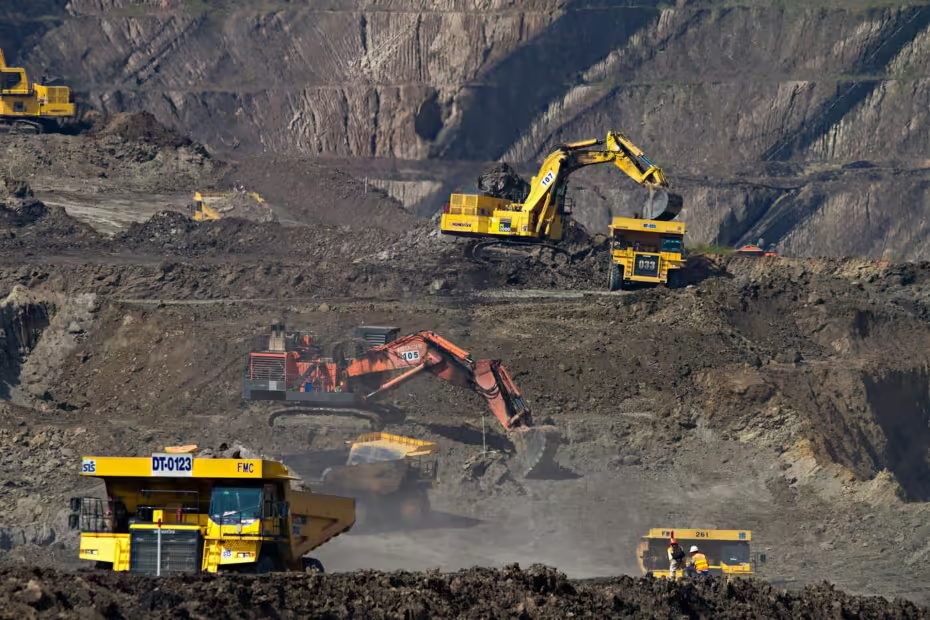“There’s a race going on to develop recycling capabilities … to support a pivot away from reliance on Chinese metals supply.”
Mark Kristoff, CEO of Traxys, stresses the need for Western countries to embrace recycling as a key strategy to reduce dependence on Chinese metal supplies.
Kristoff, a seasoned expert in global mineral commodity trading, acknowledges the common industry sentiment that “this time it’s different,” especially given China’s strategic advantage in minerals, the slow pace of Western mining projects, and the potential of turning waste into valuable resources.
“If you start looking at a new mine today you’re talking 7-to-10 years in many cases for first production by the time you permit it, finance it, go through pre-feasibility and feasibility studies,” says Kristoff.
He points out that this process is even slower in Western regions where government mandates do not allow for rapid development.
Kristoff, who is a keynote speaker at the IMARC event in Sydney and Resourcing Tomorrow 2024 in London, highlights the growing importance of recycling.
He notes that government mandates now require significant percentages of electric vehicle (EV) raw materials to come from scrap. “Many of the government mandates are targeting 40-70% of battery feed materials having to ultimately come from recycled materials, which is a big piece of the equation.”
Also Read: Costs of standing still too great: Alan Young on mining’s future
Turning Waste into Industrial-Scale Mines
Kristoff explains that the circular economy and supply chain fundamentals are driving the development of recycling technologies, especially in the West and Korea.
“There’s a race going on to develop recycling capabilities, particularly in the West and in Korea, to support a pivot away from reliance on the Chinese supply, which currently dominates the market in every facet.”
Traxys has been an early-stage investor in novel technologies that could yield significant returns. Kristoff emphasizes that if successful, these technologies could enter the market much sooner than new mine developments.
“The current scrap-to-virgin-production ratio might be circa 30% [for some materials],” he notes, adding that there’s already enough material, like old phones and laptops, to kickstart recycling projects.
Mark Kristoff believes that recycling will become a multi-billion-dollar industry and will significantly impact Traxys’ business within the next 2-5 years. Beyond recycling, Kristoff is closely watching Western governments’ efforts to rebuild strategic metal stockpiles, which were largely depleted in the 1990s.
He views this as a response to the “very effective and successful” strategies employed by China’s State Reserve Bureau over the past two decades.
He also expresses concern about the challenges automakers face with electric vehicles, particularly regarding consumer adoption. “One of the real problems the automakers are seeing with consumer adoption and purchasing of EV platforms is the very severe depreciation you have the second these vehicles are driven off the showroom floor,” says Kristoff.
He points out that while traditional combustion engine vehicles depreciate about 10% immediately, EVs can lose 30-50% of their value on day one. This, he says, is hampering demand for EVs, leading to reduced earnings and slower sales.
Trade Tensions and Supply Chain Challenges
Mark Kristoff also addresses the complexities of sourcing materials for EVs amidst ongoing trade tensions with China. “There is also a lot of confusion today because if you want the materials for your EV supply chain you really have to buy from the Chinese,” he says.
This situation is further complicated by the US’s 25% tariff on all materials and the 100% tariff on EV platforms from China. Kristoff notes that both the Trump and Biden administrations have taken steps to escalate these trade tensions, reflecting a bipartisan consensus on the need for government intervention to help Western producers compete with Chinese counterparts.
In the near term, Kristoff underscores the importance of rebuilding critical mineral stockpiles. “I think we’re in the early days of these stockpiling assessments,” he says, adding that many Western governments are still learning how to manage supply chains effectively.
The COVID-19 pandemic, which disrupted global supply chains, has highlighted the need for a more resilient approach.

